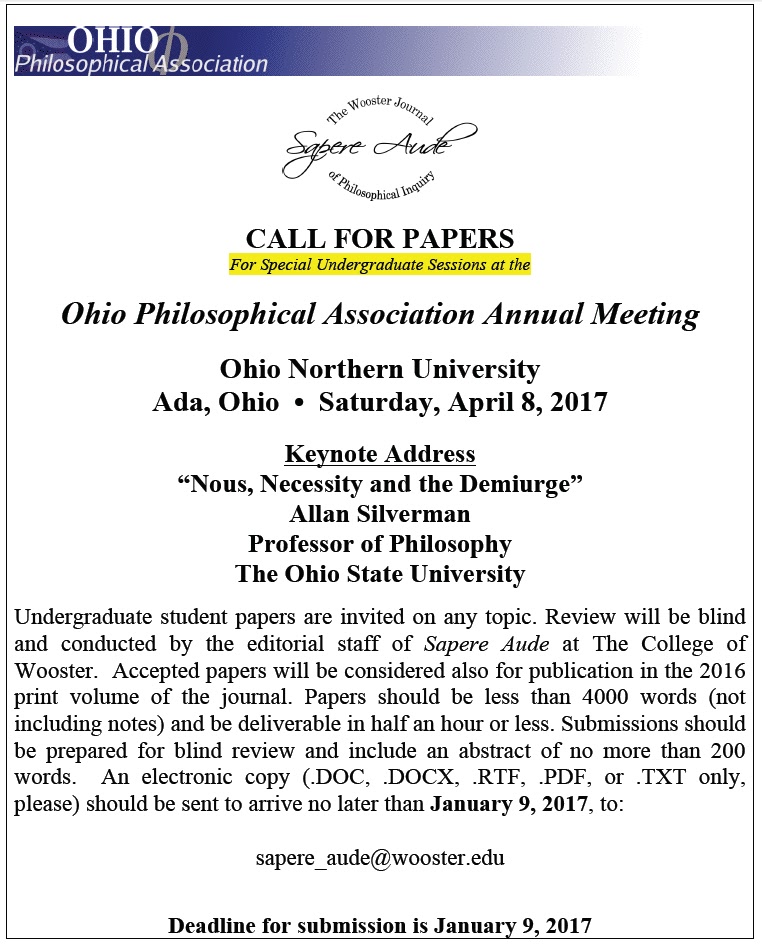The End is Near! Take a
Philosophy Class Before It’s Too Late…
Check
out these great Fall 2016 courses!
Phil 311: History
of Ancient & Medieval Philosophy
Dr. Louis Mancha [TTh 12:15-1:30 pm]
This
course will evaluate some of the basic theories and problems of Ancient and
Medieval philosophy. We will study Plato, Aristotle, Augustine, Anselm and
Aquinas primarily, but will have the opportunity to evaluate some Pre-Socratic
thinkers and a few selections from Boethius, Scotus, and Ockham. The major
topics to be covered will include the nature of being and substance, Platonism
vs. nominalism, modality, causality, truth, free will, & evil.
Phil 318: Topics in Philosophy—Aesthetics
Dr. William Vaughan [TTh 9:25-10:40 am]
What
is art? Are some works of art better than others? Does art have as much claim
to truth as other fields? In trying to
answer these questions, this course takes a traditional approach in reviewing
some major classical (post-Kantian) expressions of aesthetics, and their
standard arguments and objections. This course satisfies a core humanities
requirement.
Phil
330: Readings in Love & Friendship
Dr. Mark Hamilton [MWF 10-10:50 am]
If
your boyfriend says to you, “I love you,” how should you respond? Should you ask him to define his terms? This
is a course on love, the highest expression of human affections. What is love?
What have great minds and great lovers said about love? We will explore what
thinkers such as Solomon, Plato, C.S. Lewis, Shakespeare, Sartre, and others
have said about this deepest of human emotions. After reading these classic
works you should be able to unravel the confusion of your boyfriend or
girlfriend’s utterances. If you are not interested in love or the meaning of
friendship then please stay clear of this course. Yet if love is something you
have been looking for in all the wrong places, then please look for it in one
of the right places, specifically, this course! (Which satisfies a core humanities
requirement).
COMPLETE YOUR CORE with these offerings!
FALL 2016
Humanities: Phil
210 OL: Phil. of Human Nature,
Dr. Tiel
Phil 215: Ethics, Dr. Hamilton or Dr. Mancha
Phil 280D: Bioethics, Dr. Hamilton
Religion: Phil
217 OL: Thought & Belief, Dr.
Tiel
SUMMER 2016
Humanities: Phil 215: Ethics (Sum B), Dr. Mancha
It’s
never too late to learn how to think, we hope…

























